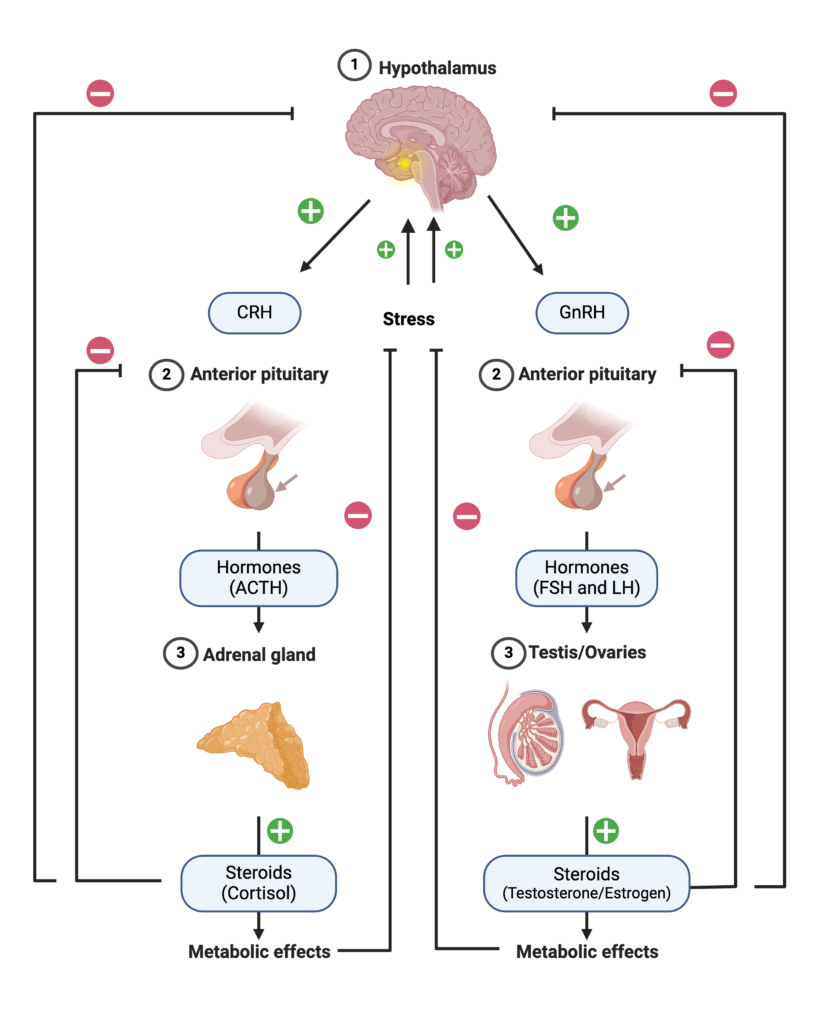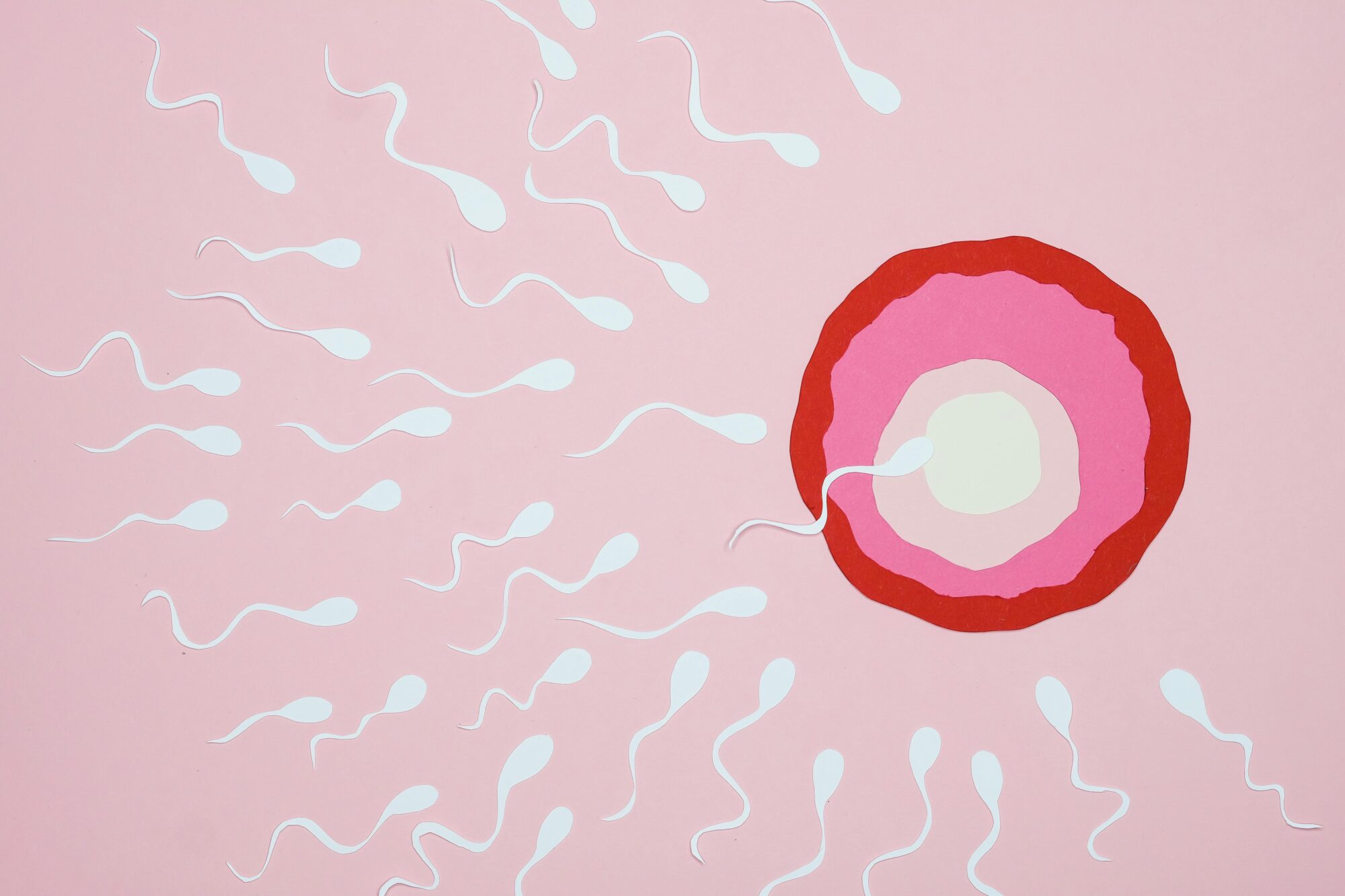In this article…
The disruption of hormone regulatory pathways within the human body can have dramatic and rippling impacts on an individual’s homeostatic balance impacting their reproductive health.
The Endocrine System is an Important Regulator of Homeostasis
When you hear the term reproductive biotechnology, you may instantly think of assisted reproductive technologies (ARTs) such as IVF. However, a major research area for reproductive scientists is understanding factors that impact the overall human body, and therefore fertility. Consequently, endocrinology – the study of the endocrine system, and the factors that impact it is an important focus for reproductive scientists.
Within the human body, various hormone-regulatory pathways are required to ensure homeostasis. These autonomous systems help to ensure the health and longevity of the individual. However, they can be impacted by factors from our external environment known as endocrine receptors. As mentioned in a previous article, endocrine receptors can come in many different forms including the following:
- Bisphenol A (BPA)
- Pesticides
- Air Pollution (particulate matter)
- Heavy Metals
- Parabens
A common factor between these endocrine disruptors is the fact that their impact results from the use of manufactured products such as plastics. Although BPA (found in manufactured plastics) and parabens (present in cosmetic products) are becoming less apparent, their impacts on reproductive health have been noted in scientific discussions. These impacts ultimately result in disruptions to hormone production and the function of important organs within the endocrine system – the pituitary gland, adrenal gland and gonads.
The Hypothalamus-Pituitary-Adrenal Axis is a Fundamental Regulatory System
Healthy reproductive health relies heavily on the production of sex hormones (estrogen, progesterone and androgens). Two vital hormone production and regulatory pathways are the Hypothalamus-Pituitary-Adrenal Axis (HPA) and the Hypothalamus-Pituitary-Gonadal Axis (HPG). To help visualise this complex and interconnected system, I have produced a diagram.

The diagram shows the interconnected relationship between three vital regulatory organs to produce hormones and the sophisticated negative feedback mechanisms involved.
Focusing on testosterone production, imagine if you removed or limited the amount of a single hormone from anywhere in the pathway. This would cause a ripple effect throughout the pathway potentially leading to inadequate levels of testosterone production, impacting male health, but more specifically the success of spermatogenesis (production of sperm).
Negative Feedback Loops Ensure Homeostatic Balance
Of course, it’s not that simple, as these pathways do not exist in isolation and have sophisticated negative feedback mechanisms to ensure homeostasis. However, when the negative feedback mechanism cannot mitigate these issues, serious complications begin to arise.
Without dedicated reproductive research scientists and biotechnologists, the understanding of the endocrine system, and ways to mitigate endocrine disruption wouldn’t be possible.
Hormone Regulation and Hormone Therapies go Beyond Reproductive Biotechnology
In a previous article, the importance of reproductive biotechnology and ARTs was highlighted. A major component of ARTs is hormone injections, to boost the success of treatments such as IVF. The use of hormone injections allows for the artificial balance of hormones to help improve conception and gestation of the pregnancy.
However, hormone therapies go beyond reproductive biotechnology and have been utilised in cancer therapies. Drug discovery is a vital area of biotechnology that relies heavily on the information and data produced by research scientists. If you’re interested in the process of drug discovery, check out ‘Understanding the Drug Development Pipeline‘ written by Harry.
Understanding the importance of the endocrine system and maintaining a homeostatic balance of hormones might seem irrelevant to the everyday person. However, hopefully, a little bit of knowledge can be applied to your everyday life. For example, you might question ‘Why is my shampoo bottle telling me it’s free from parabens?” or “Why does my plastic container say BPA free?”. Well, that’s because research scientists have discovered the negative impacts that these chemicals can have on your everyday health, but more specifically, your reproductive health.
Homeostasis
the autonomous and continuous process in which the body maintains internal chemical, physical, and biological stability in response to changes in the external environment.

Pingback:Why Hasn’t Big Pharma Pulled Out A Male Contraceptive Pill?